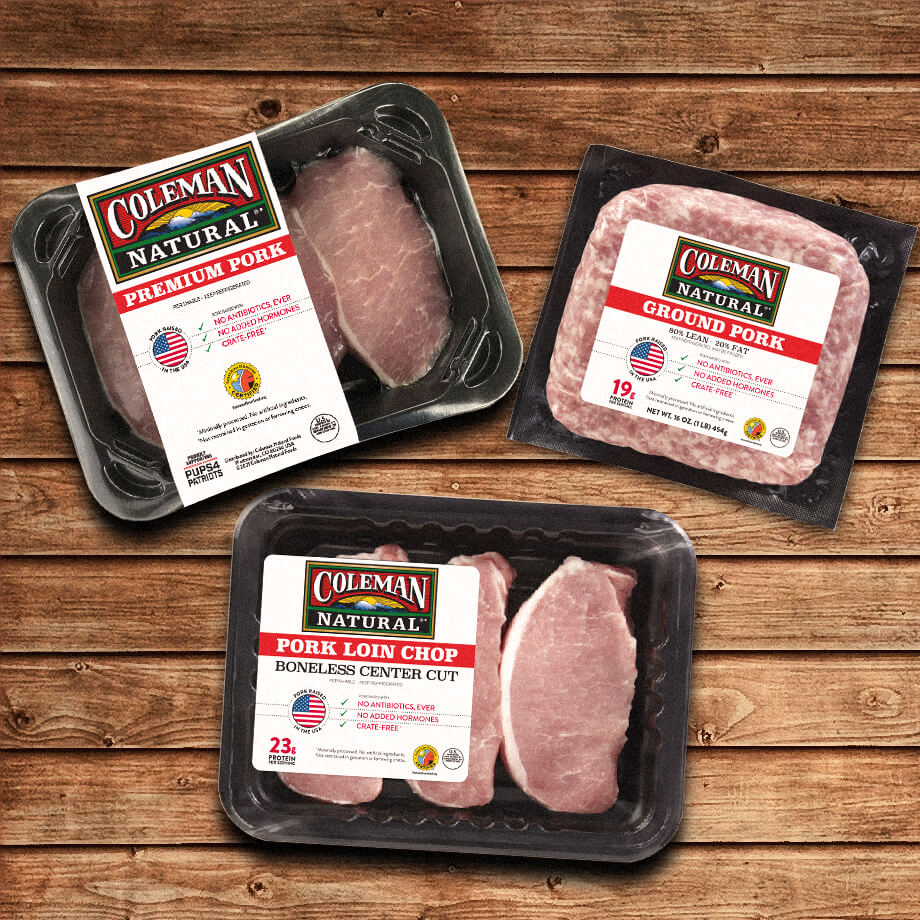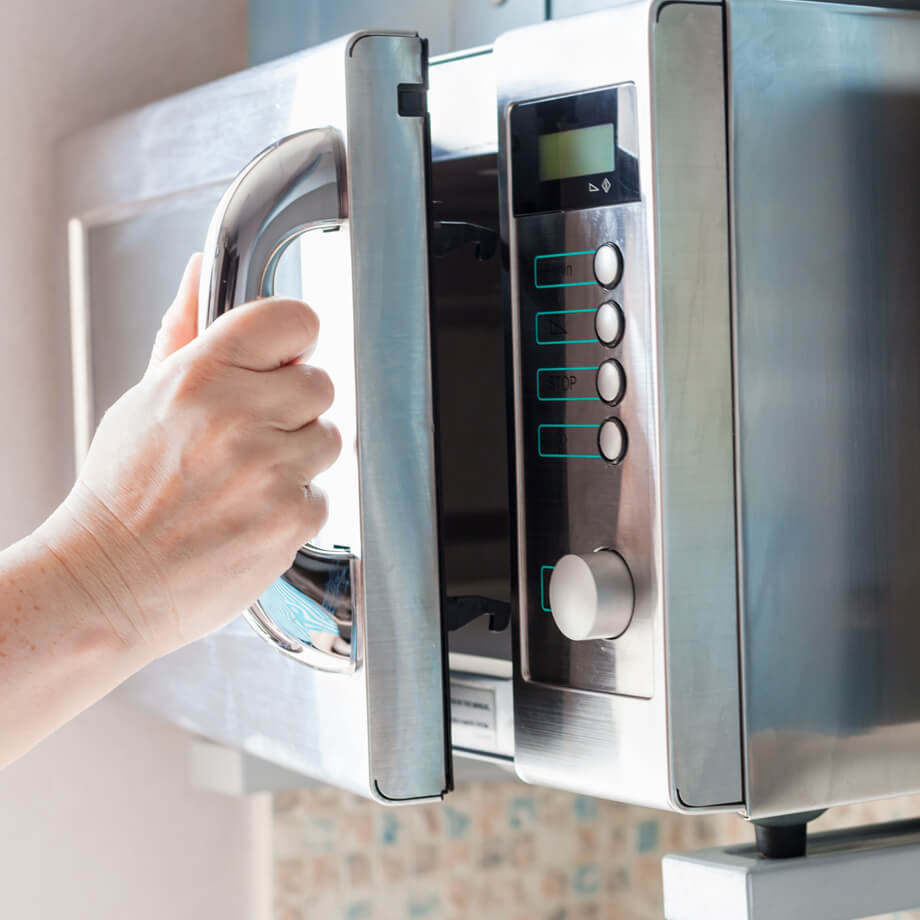Is It Ok to Eat Beef From Freezer After More Than 3 Months Old
Are you using your freezer efficiently and effectively?
Buying meat in bulk and stocking up the freezer is a great way to save money, reduce trips to the grocery store, and make sure you always have something to eat! Think of your freezer as your savings account, where you can set "funds" (aka food) aside for a rainy day. The fridge is your checking account, where you keep the assets you plan to use soon.
To get the best bang for your frozen buck, it's important to know some important safety tips for freezing and thawing your meat. Learn all the details here for smarter shopping and saving!
Does Frozen Meat "Go Bad?"
According to the USDA, frozen meat kept at 0°F or lower will always technically be safe to eat. This low temperature prevents the growth of microorganisms and microbes like bacteria and mold.
But that doesn't mean it will taste good forever. While freezer burn doesn't make frozen meat unsafe, it will make the texture dry and leathery. To identify freezer burn, look for ice crystals on the surface of the meat, or for a shriveled or discolored appearance.
You can cut off freezer-burned spots before or after cooking. Or if the meat is heavily freezer-burned, you may want to throw it away.
How Long Does Frozen Meat Last?
In general, the less a piece of meat has been processed, the longer it will last. So a whole, raw chicken can last in the freezer for up to a year, while cured and cooked beef hot dogs are best frozen for one to two months.
Here's a quick list of common uncooked meats and how long they'll stay tasty in the freezer.
- Bacon – 1 month
- Sausage (pork, beef, chicken, turkey) – 1-2 months
- Steaks – 6-12 months
- Pork chops – 4-6 months
- Pork butt or roast – 4-12 months
- Whole chicken or turkey – 1 year
- Cut chicken or turkey – 9 months
- Ground beef, turkey, or pork – 3-4 months
You're not limited to only freezing raw meat! Cooked meat can also be frozen to prolong its life.
For example, you could cook a large roast and freeze half of it to use in a future dish. Just be aware that raw frozen meat keeps a pleasing texture for longer than cooked frozen meat, since it hasn't yet lost its moisture through the cooking process.
Here are some recommended freezing times for cooked meat:
- Pork or beef hot dogs – 1-2 months
- Whole ham – 1-2 months
- Half ham – 1-2 months
- Poultry – approx. 4 months
- Pork and beef – 2-3 months
As you see, there are no hard and fast rules, but rather a range which can be impacted by how fresh the meat was at the time of freezing, and the way your meat is packaged. To make sure you're not leaving product in the freezer for too long, always label and date your frozen foods!
What Is the Best Way to Package Meat For Freezing?
The most important thing to keep in mind when packaging meat for the freezer is that air is the enemy. You want as little air in your packaging as possible, because that's what causes freezer burn!
If your meat comes in a vacuum sealed package, you can successfully freeze it as-is. Styrofoam trays aren't as airtight, so you can either over-wrap them in tight plastic wrap, or repackage their contents by wrapping them in plastic and placing them inside a freezer bag.
Previously cooked meat can also be frozen in a freezer bag or a freezer-safe container. Make sure to squeeze out as much air as possible before you zip it up, and label what is cooked and what is fresh. Ground meat in particular can be hard to identify between raw and cooked after it's frozen.
When you put your packages in the freezer, you want them to freeze as quickly as possible to prevent the growth of ice crystals which will damage the texture. Lay the items flat and don't stack them until they're solid. Ideally, you would freeze your meat in a stand-alone freezer that isn't opened often. The more often you open your freezer, the more likely you are to lose temperature.

If a Package Says "Keep Frozen," Can It Go In the Refrigerator Instead?
It's always best to stick to the package instructions on your food. This is partially for food safety reasons, and partially for reheating reasons. Foods that say "keep frozen" often have cooking instructions that start from a frozen state.
If a package says to thaw before cooking, then you can thaw it in the refrigerator. (See "What Is the Best Way to Safely Thaw Frozen Meat" below.)
How Long Can I Keep Meat Refrigerated Before Freezing It?
Meat that has been kept in the refrigerator is safe to freeze IF:
- It has been kept below 40°F in the refrigerator, and
- It is before the "use by" or "freeze by" date on the packaging
If the product doesn't have a "use by" or "freeze by" date, make sure to freeze it within 1 to 2 days for ground meat or poultry, or 3 to 4 days for steaks, chops, or roasts. Check the FDA Food Storage Chart for a full list of refrigeration and freezer storage times.

What Is the Best Way to Safely Thaw Frozen Meat?
Thawing meat out on the kitchen counter is a big no-no. Meat that is left out at room temperature for more than 2 hours (or 1 hour in the summer) can grow dangerous bacteria.
The three safe ways to thaw meat are in the refrigerator, in cold water, or in the microwave.
Thawing Frozen Meat in the Refrigerator
This is the slowest but safest way to thaw frozen meat. For small items, an overnight thaw will usually be sufficient. For a large piece of meat, plan for one day of thaw time for every five pounds of meat.
Thawing Frozen Meat in Cold Water
Thawing meat in cold water is faster than the refrigerator, and the cool temperature prevents rapid bacteria growth. Make sure your food is in a leak-proof package and submerge it completely in cold water. Change the water every 30 minutes to make sure it stays cold during the thawing process.

Thawing Frozen Meat in the Microwave
Using the microwave is the fastest way to thaw frozen meat, but this method is best reserved for mid-sized cuts, like thick steaks and chicken pieces. The microwave's defrost setting can start to cook small items like thin pork chops. And since the microwave doesn't always thaw evenly, large pieces of meat can actually start to cook in some areas while still frozen in others.
To use this method, take the meat out of the package and place it on a plate or other microwave-safe surface. Follow the instructions on your microwave to defrost based on weight and be sure to check the progress often, turning the meat to ensure even thaw.
After thawing, cook immediately.
Can Meat Be Refrozen After Being Thawed?
The USDA advises that it is safe to refreeze raw meat if it was thawed in the refrigerator. If you used the cold water or microwave methods, it's better to cook the entire portion and then freeze the cooked leftovers once they've cooled for about 30 minutes, or once they've stopped steaming.
It's best to only thaw and refreeze your meat once, rather than several times. Every time the meat is thawed, it will lose some moisture and repeated freeze/thaw cycles may lead to a chewy texture.

A Stocked Freezer Makes an Economical Kitchen!
Keeping a well-stocked freezer can help families save money on groceries since you can purchase items when they are on sale or buy in bulk, which usually provides the best price per pound. To avoid waste, make a habit of checking the freezer before making your grocery list or menu, so you can use up what you have before you risk freezer burn.
Stock up on meat from a supplier that meets high animal care standards like Coleman Natural Foods, so you'll have a steady supply of protein you can feel good about feeding your family, ready to thaw and add to any recipe!
Source: https://www.colemannatural.com/blog/how-long-can-you-keep-meat-in-the-freezer/
0 Response to "Is It Ok to Eat Beef From Freezer After More Than 3 Months Old"
Post a Comment